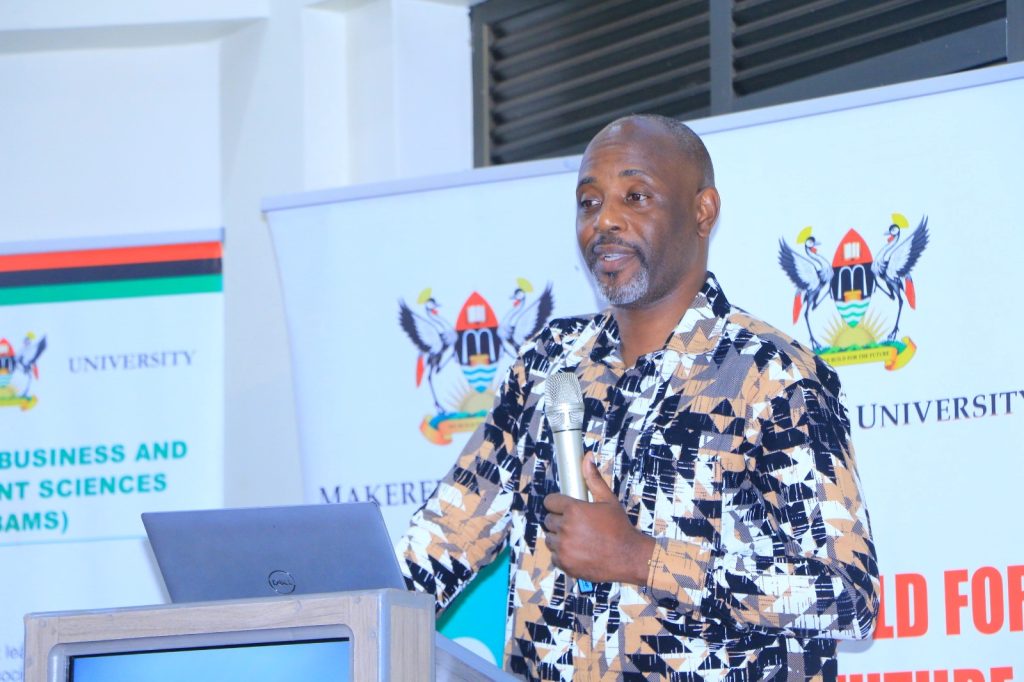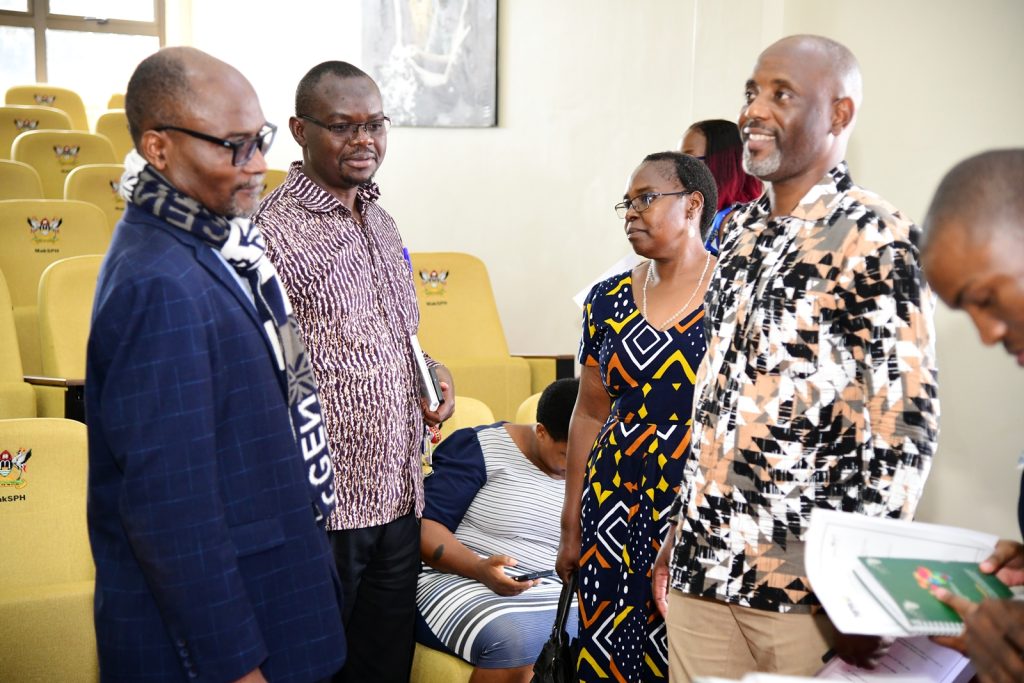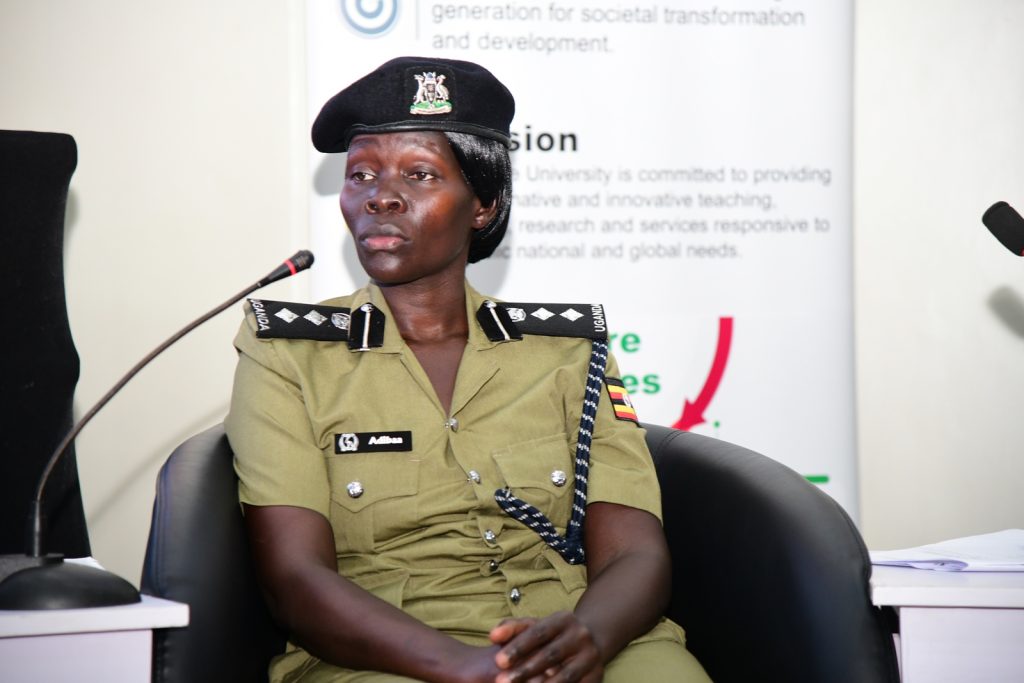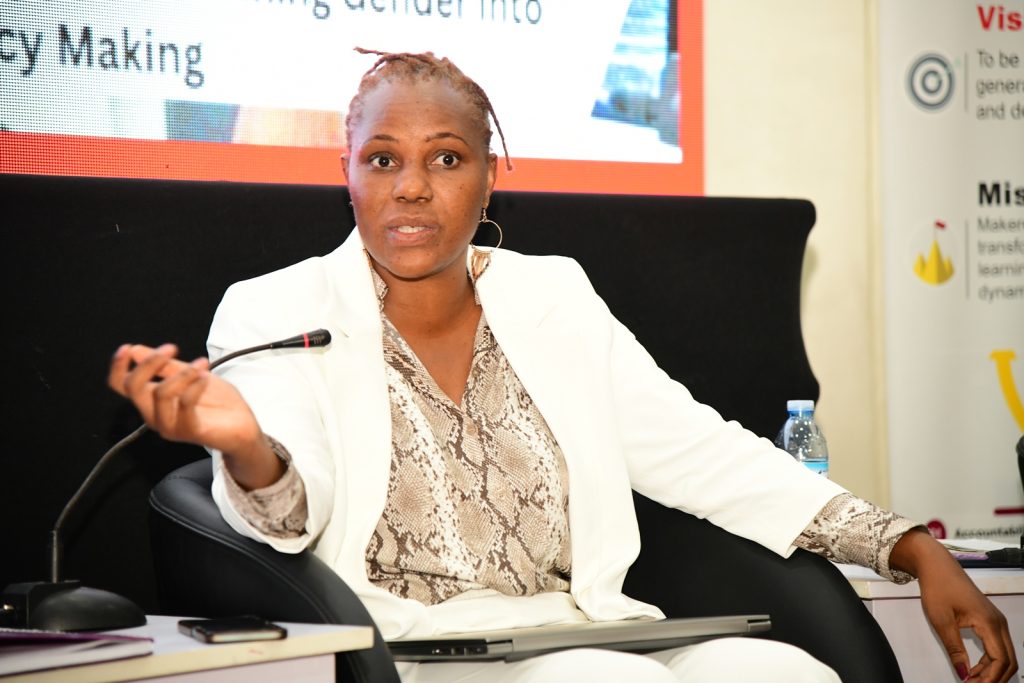Summary:
- Activists urged the government to include gender considerations in public policy for economic transformation and social sustainability during a May 21 policy dialogue at Makerere University, organized by the College of Business and Management Sciences with American University.
KAMPALA, (Examiner) – Activists have called on the government to incorporate gender considerations in public policy making to achieve economic transformation and social sustainability. This appeal was made during a policy dialogue at Makerere University on May 21, organized by the College of Business and Management Sciences in collaboration with American University.
Ms. Safia Nalule Jjuuko, Chairperson of the Equal Opportunities Commission, emphasized the importance of gender mainstreaming in social and public policy enactment. She highlighted that for Ugandans to fully benefit from government initiatives, gender considerations must be central to policy planning.
“Gender extends beyond male and female. It encompasses various societal groups, including the disabled and the poor. Government institutions must consider these groups to effectively plan for all Ugandans through policies that serve the best interests of all citizens,” Nalule stated. She added that thorough knowledge of the population is crucial for effective planning.
Dr. Joseph Muvawala, Prime Minister of Busoga Kingdom and Executive Director of the National Planning Authority, reiterated the need for gender to be a fundamental element in all policy endeavors. “Institutions should establish units dedicated to gender mainstreaming to address societal challenges,” he said. Muvawala pointed out that addressing gender disparities is essential for social, political, and economic development. “When examining employment, a gender perspective reveals much about societal progress,” he noted. He warned that neglecting gender considerations in policy making risks losing the diverse experiences and realities of individuals.

Dr. Anna Ninsiima from the School of Women and Gender Studies at Makerere University identified institutional failures to provide quality services as a major barrier to gender equality. She stressed the need to strengthen health, education, and human resource institutions, highlighting that gender dynamics must not be overlooked. “For instance, girls are dropping out of school due to a lack of sanitary towels,” Dr. Ninsiima said. She also called for the implementation of policies, noting that many remain unexecuted.
Ms. Agnes Kisembo, the Programme Specialist at UN Women, said the United Nations Sustainable Development Goals (SDGs) place a strong emphasis on gender equality and the importance of gender mainstreaming in policy making. Specifically, SDG 5: Gender Equality, is dedicated to achieving gender equality and empowering all women and girls. She urged government to prioritize gender-responsive policies and programs to ensure the full realization of women’s rights and participation in decision-making processes. Ms. Kisembo emphasized the need for collaboration between government, civil society, and other stakeholders to address gender disparities effectively.

Dr. David Mpiima, from the School of Gender and Women Studies, Makerere University, emphasized that it is crucial to recognize that gender mainstreaming goes beyond just addressing disparities but also involves promoting equality, equity, and inclusivity in all aspects of society. By understanding the dynamics of power and influence, stakeholders can work towards creating a more equitable and just society for all individuals, regardless of gender.
Gender-Based Violence (GBV) was a significant topic of discussion at the dialogue. SSP Irene Adibaa, representing the Uganda Police Force, noted that domestic violence is predominantly reported by women, who often bear the primary caregiving responsibilities for children. She acknowledged that men also report cases of domestic violence, albeit less frequently, due to societal norms.

“Some women are the source of conflict in their homes, which is why we see a high number of domestic violence cases linked to financial issues,” Adibaa said. She urged men to participate actively in combating gender-based violence and mentioned the recruitment of men into the Child and Family Protection Unit to encourage more open communication among men.
The 2023 Police Crime Report revealed 14,681 domestic violence cases reported nationwide. Of these, 1,520 cases went to court, with 10,792 involving adult female victims, 3,243 adult male victims, 505 male juveniles, and 644 female juveniles. Additionally, 242 murders due to domestic violence were reported, with 122 cases going to court, 16 not pursued, and 104 still under investigation. North Kyoga recorded the highest number of domestic violence cases, followed by Aswa and Rwizi regions, each with 28 cases.

Citing a 2019 UNFPA report, Ms Elisabeth Kemigisha from FIDA said Uganda loses USD77 billion to gender based violence. She stressed the importance of investing in gender equality initiatives to not only reduce economic losses but also to create a more prosperous and sustainable future for Uganda. Ms. Kemigisha also highlighted the need for comprehensive policies and programs that address the root causes of gender-based violence in order to effectively combat this issue.
Sharing experiences from South Africa, Dr. Jamela B. Hoveni, from the Institute for Economic Justice, South Africa said South Africa’s Policy on Gender-Based Violence, through the National Strategic Plan on Gender-Based Violence and Femicide (NSPGBVF) and other legislative measures, focuses on a multi-faceted approach to prevent and respond to GBV. It emphasizes strong leadership, coordination, prevention through education, justice system improvements, comprehensive support for survivors, economic empowerment, and robust data management. These policies aim to create a society where all individuals can live free from violence and discrimination, ensuring that survivors receive the support and justice they deserve.

Prof. Eria Hisali, Principal of the College of Business and Management Sciences, acknowledged steps taken by Parliament to ensure inclusive policy making. He emphasized the need for continuous efforts to integrate gender considerations into all aspects of public policy to address the complex challenges faced by society.

